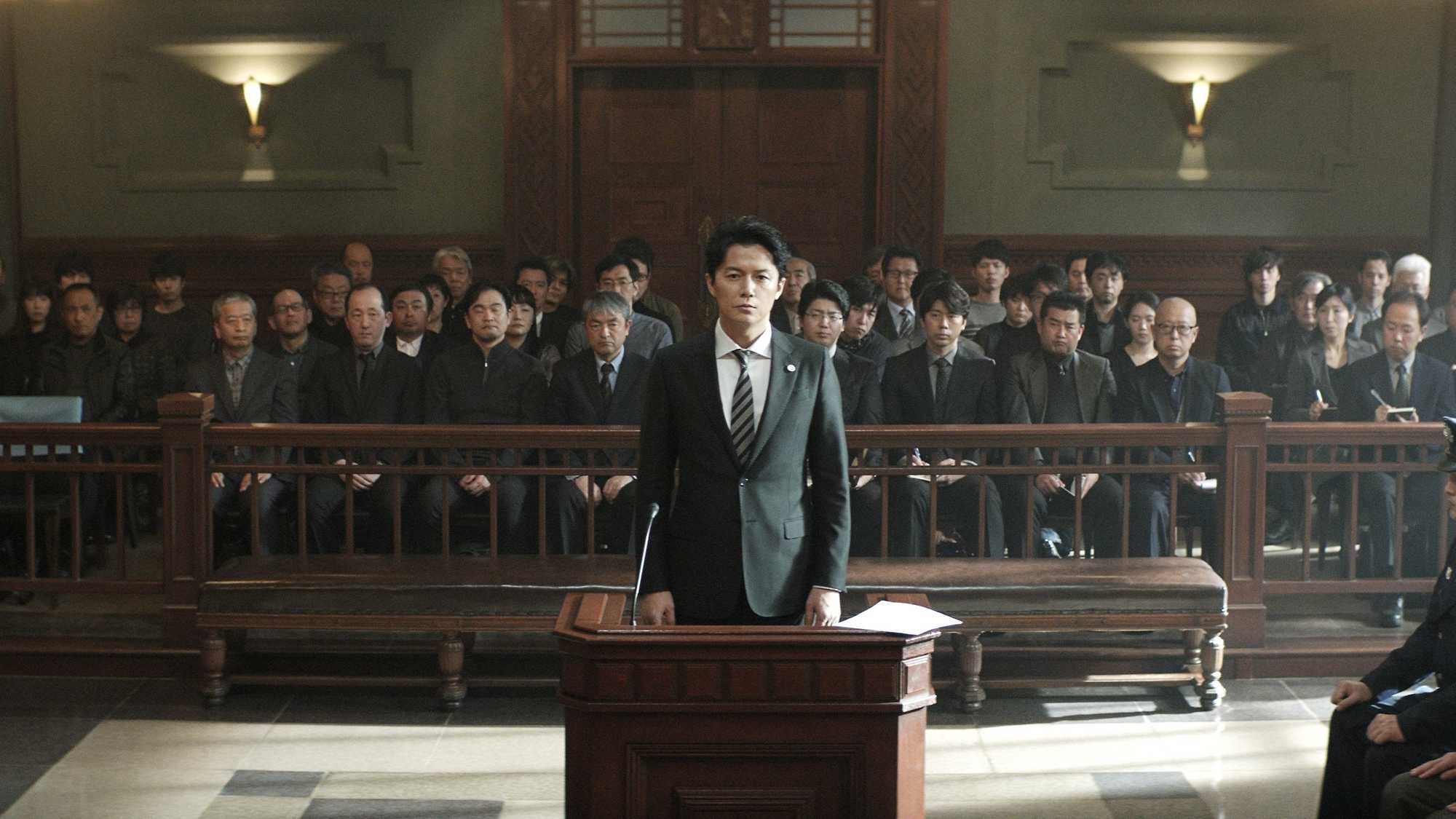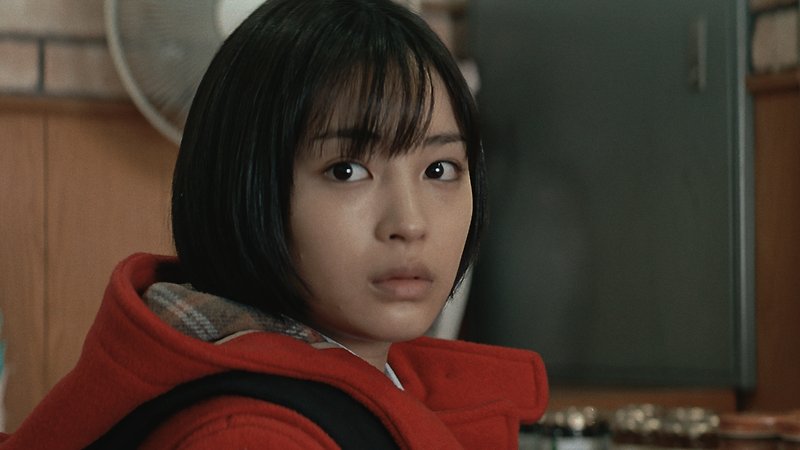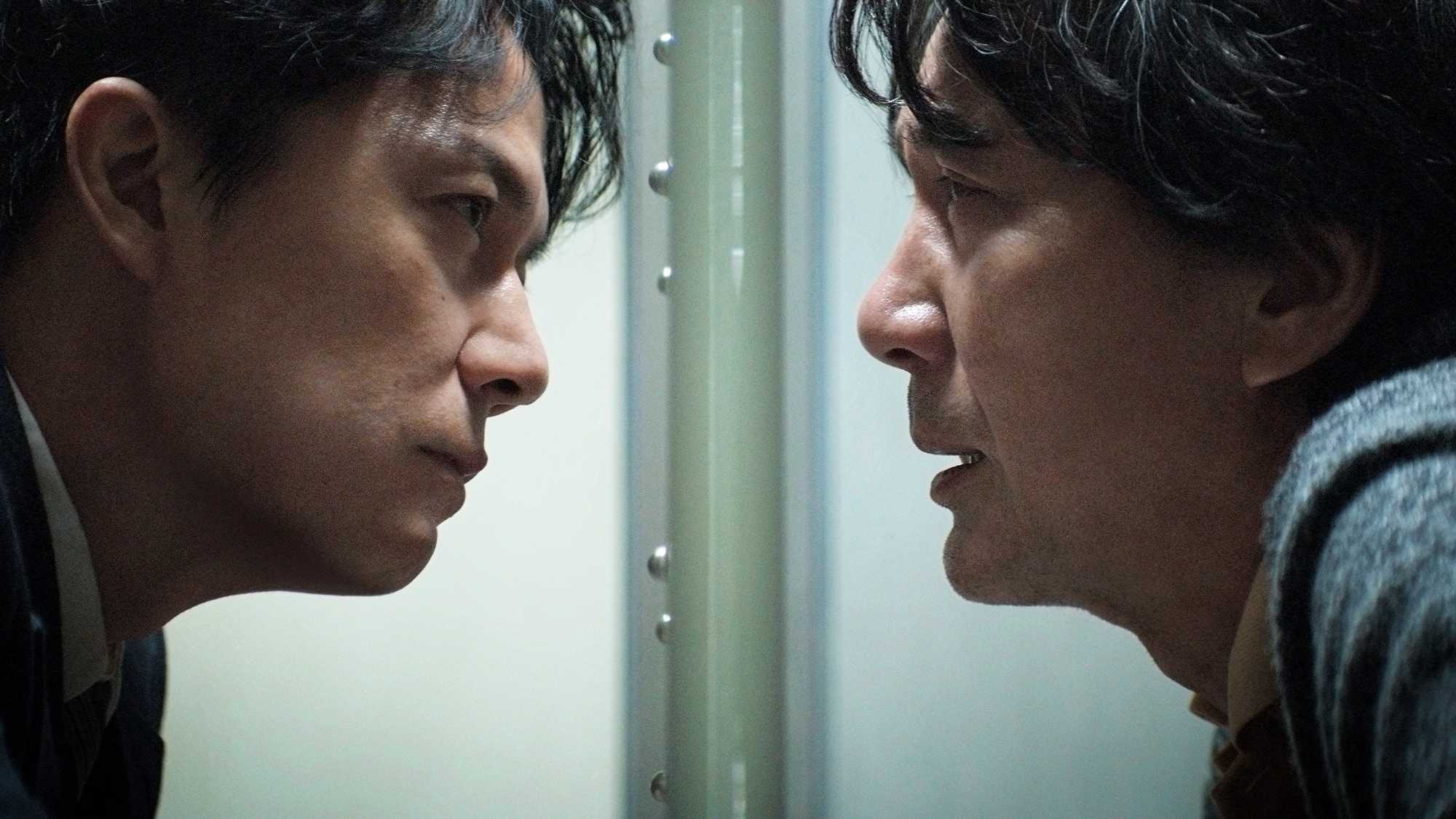A twice-convicted killer stands trial for a third murder, though not all is what it seems, in this morally complex drama from the Palme d’Or-winning director of Shoplifters.



A powerful, intricately constructed meditation on the mysteries of the heart, the elusiveness of truth and the injustices of the Japanese justice system.
Screened as part of NZIFF 2018
The Third Murder 2017
Sandome no satsujin
Celebrated as a director of humanistic family portraits, Kore-eda Hirokazu made an unexpected turn before his Palme d’Or-winning Shoplifters with this intense legal drama – though it shouldn’t surprise anyone that his mastery extends to the genre. Distinguished by sharp widescreen photography and steely performances from a prestige Japanese cast, The Third Murder finds Kore-eda not only excelling at the craft of classical filmmaking, but imprinting it with a central theme of his work: the nature of memory and truth.
From his own original script, Kore-eda draws an ever-shifting sight line between Misumi (the redoubtable Yakusho Koji), a convicted double murderer who has confessed to killing his boss; the victim’s daughter, Sakie (Hirose Suzu, Our Little Sister); and Shigemori (Fukuyama Masaharu, Like Father, Like Son), the defence lawyer assigned to what appears to be an open-and-shut case.
Told with a fluidity that recalls Rashomon and through a starkly elegant visual style that rivals David Fincher’s, the complexities of who did what and why are obscured and inverted just as soon as they’re pulled into view. But this engrossing, deftly constructed murder mystery is also very much a Kore-eda film: a considered, understated, quietly critical window into Japanese society, impactful precisely because of what it doesn’t tell us after the final verdict. — Tim Wong
“Sleek and suspenseful, deceptive and profound, The Third Murder is an artful addition to the canon of modern-day crime drama, one whose core mysteries encompass more than just the case at hand.” — Michael Leader, Sight & Sound
“[The Third Murder] offers the satisfactions of a well-constructed suspense story, with twists that come from the characters of its principals, not plot contrivances. It also relentlessly exposes a judicial system that seems as fixed as a pro-wrestling bout, with defendants assigned predetermined story lines they change at their peril. Misumi, of course, is the heel. Kore-eda’s film, though, is a masterpiece.” — Mark Schilling, Japan Times